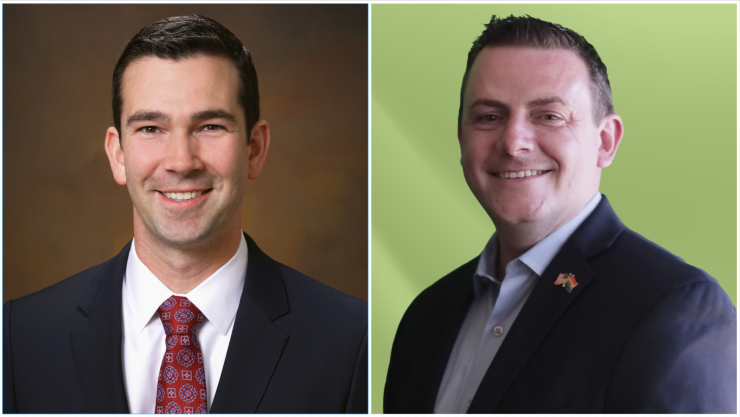Members of the LGBTQ community from within the executive ranks of many credit unions and professional organizations are taking steps to ensure that others like them have a path to leadership and belonging.
Financial institutions that have already
“Executives have to really put words to what they mean by inclusion, [while working to] advocate and create kind of a pathway to that … but I don't think that's enough,” said Andrea Cooper, director of talent for the Madison, Wisconsin-based insurance firm CUNA Mutual Group. “When we listen to the voices of our employees, we also recognize what voices might be missing, and how we can be intentional about bringing that perspective into this culture we're trying to create.”
Through the use of employee resource groups to support marginalized employee groups such as the LGTBQ community, persons of color, those with disabilities and many others, credit unions can identify ideas that had previously gone unheard, Cooper said.

“That connection between that executive advocacy and the voice of an ERG really can lead to some more progressive or provocative ideas that maybe in the past — in a business corporate setting — we wouldn't have seen or experienced,” Cooper said.
In response to the feedback gathered from the ERGs, and from industry-wide pushes for more inclusion, some credit unions are adapting services to meet the needs of underrepresented groups and develop future offerings
The $9.5 billion-asset GreenState Credit Union in North Liberty, Iowa,
For credit unions with smaller economies of scale, furthering causes for inclusion takes a different path.
Jason Mertz-Prickett, vice president of operations for the $100 million-asset Upward Credit Union in Burlingame, California, began working with the organization’s board of directors in 2020 to develop a formalized resolution outlining its public position on various DEI initiatives.
“We’re right outside San Francisco in Northern California and we've got it pretty good [in terms of openness with sexuality] … I see some of the struggles that our colleagues are going through in states like Florida right now,” Mertz-Prickett said. “Making sure we continue this fight is very important, so it just felt like a natural progression for me to make sure Upward Credit Union was on the forefront of this.”

Mertz-Prickett stressed that through his experiences as both a credit union leader and as a member of the LGBTQ community, fostering conversations surrounding language choice and potentially discriminatory terminology is a necessary step for bolstering allyship.
“I wish people would ask, 'How do we have these conversations? … How do we make sure that we're not offensive to the LGBTQ+ community [and] how are our actions being perceived as being accepting and welcoming and not just what they arbitrarily think is okay, which sometimes is just utterly and outright offensive?'” Mertz-Prickett said.
With support for LGBTQ involvement growing across the credit union industry,
“We've created our employee resource groups for all of our employees at all levels, to have productive conversations about how to effectively support and advocate for themselves, for the members and for the community. … Inclusion and belonging is not just what we do, it's who we are, and will continue to fight for what we believe in,” Brian Wolfburg, president and chief executive of the $12.4 billion-asset VyStar Credit Union in Jacksonville, Florida, said at the CU Pride Leadership Conference held earlier this month.






